Years ago, I was appointed senior economist in the Europe and Central Asia department of the World Bank. Despite my being appointed through a tough, open, and competitive process, some of my colleagues were anxious that a Cameroonian was picked for the position. They wondered whether I would be able to handle the highly complex fiscal, monetary, and economic issues facing these countries, all engaged in the European Union accession process. Having done research on the economics of monetary integration, I was actually well prepared for the job.
My colleagues’ dark prediction did materialize. When my appointment was officially communicated to the various countries under my responsibility, one of the ministers of finance reacted with shock and horror. A Ph.D.-holder herself, she only inquired about my citizenship. When told that I was Cameroonian, she did not read my books and papers, or examine my credentials. The minister publicly voiced her disapproval, telling news media that she was deeply disappointed that the World Bank would select “someone from Africa” to be their senior economist and advise them on complex macroeconomic issues.
While I was stress-free, my superiors were not. The World Bank sent an official letter to the European minister to diplomatically condemn her comments, raise the possibility that she might have been misquoted by the media, express the wish that she would take the first opportunity to clarify her statements. She angrily responded with an even stronger statement, asserting that I probably did not know where her country was located and might need a map to find it.
The World Bank stood its ground. It kept that country in my portfolio despite the minister’s threat—on which she actually followed through: During my three-year tenure in that position, her country reduced macroeconomic dialogue to a bare minimum and basically suspended all budget support operations. When I traveled twice a year to her country on routine macroeconomic monitoring missions, she told me, with admirable and bizarre honesty, that her anger was “not against me personally,” but that she simply could not accept the idea that an African economist would be assigned to her country.
I reflected on such issues in my books “Nihilism and Negritude” (Harvard University Press, 2016) and “Un Bantou en Asie” (PUF, 2011). Writing the books made me think about other angles of the problem, most notably the superiority complex or even racist attitudes exhibited by some development experts. In the African context in particular, they often fall into the trap of self-righteousness, which prevents them from really engaging with stakeholders and enriching their understanding. Armed with strong beliefs in their academic credentials, they fail to recognize their ignorance of the terrain, the people, or the suitability of their proposed policies in places where they spend little time and interact with minuscule, nonrepresentative samples of politicians.
Many of the development experts who set the policy agenda across Africa are recent university graduates with very little professional experience in any field, and none about life and policies in developing countries. Yet, they do not lack supreme confidence in their diagnostics of the problems or in the pertinence of their prescriptions. Not surprisingly, their policy advice, provided on the basis of a fuzzy understanding of country context, is often of poor quality, irrelevant, and harmful. The myth of dominant “donor” knowledge and the power of money (channeled through loans and grants to cash-strapped governments constantly facing crises) can seal the fate of nations.
Critics of the development industry tend to focus too narrowly on the sometimes-imperial public discourse of the visible individuals at the helm of major institutions. The problem goes well beyond asymmetric power relationships between those who have the funding and conditionalities, and the poor-country policymakers constrained by their macroeconomic crises and tense domestic situations. It is useful here to take the analysis toward the idea that “power is everywhere” (Michel Foucault), disseminated and embodied in the discourse, practices, and “regimes of truth” across the development industry.
The deleterious consequences of prejudice by some members of the “donor community” and their misuse of power cannot be underestimated. First, government officials who are subjected to the superiority complex and disdain from the representatives of foreign aid institutions eventually stop sharing honest opinions, as they must do whatever it takes in order to secure external financing. African policymakers often feel helpless when they are told in no uncertain terms (generally in writing) that their major strategy and policy papers must be validated by the all-too powerful “donors” as a prerequisite for discussions about foreign aid.
The sense of powerlessness worsens and becomes a feeling of being blackmailed when they realize that getting the approval and formal clearance from a small number of (sometimes ill-informed) multilateral partners is also a condition for securing aid from almost any bilateral source. Yet, the world expects these countries to set their own objectives, choose their strategies and policies, and fully own the results—whatever they may be. I once attended a workshop in Ouagadougou to discuss Burkina Faso’s health sector strategy. Two-thirds of the participants were from foreign countries and organizations—each of them with strong views and preferences on what the country’s health policy should be. Who would be accountable if the recommended policy eventually proved to be erroneous?
Second, the opportunity costs of these learning deficits are substantial. A perverted incentive system emerges, as the other actors (business communities, civil society organizations, and people in poor countries) feel disempowered in discussions and decisions about the future of their own country. Local stakeholders always have precious knowledge of the country and the real status of government accounts and programs, which they may not be able to share with the visiting experts of the aid community. This asymmetry of information often leads to the use of inaccurate data. Without honest and transparent debates over policy options, the wrong diagnostics are often made, followed by erroneous and harmful policy advice. Ultimately, a vicious circle unfolds: Citizens in recipient countries question the legitimacy and ownership of public policies imposed from outside, which their government officials accept either because they have no other choice if they urgently need financing or because of the political allegiance of their leaders, their intellectual laziness, and their poor organizational and governance skills.
Prejudice in the development business does not only come from outside. There is also entrenched self-doubt, self-hatred, and various forms of sociopolitical ills from within the continent. Racist attitudes are sometimes internalized by African elites themselves, illustrating a profound deficit of self-esteem (one of Africa’s main deficits) and a lingering social disease, which could be called “postcolonialism stress disorder.” As a World Bank senior official, I once traveled to an African country with my assistant who, despite being African herself, was light-skinned and easily seen as a Caucasian. The authorities had been alerted of my arrival and dispatched a protocol team to welcome us at the airport. Despite the late-night flight, the hot and humid weather, the government officers were there to pick us up upon our arrival. But they did not know me and did not have a picture. They waited in the customs area holding a sign with my name. I introduced myself and thanked them for the effort and hospitality.
They barely responded to me. They both rushed to my assistant with large smiles, called her “Dr. Monga,” and welcomed her very kindly. One of them turned around and ordered me to pick up the suitcases from the luggage carousel. My assistant tried to explain that she was only accompanying me on the trip. With a surprised look on his face, one of the protocol officers eventually apologized and confessed: “We thought that the white lady was Dr. Monga, and you her assistant. Sorry.”
Prejudice and racism are still too common across Africa—often within the same ethnic groups Superficial differences in physical appearances or cultural background are too often exploited by cynical political entrepreneurs to build constituencies, create conflicts among poor communities, position themselves for rents and state capture, and generate what I have called in my work negative social capital. The weaponization of ethnicity in particular carries heavy implications for economic transformation and the collective quest for prosperity and social peace. Addressing these issues would improve the quality of public policies, and foster growth and social inclusion.
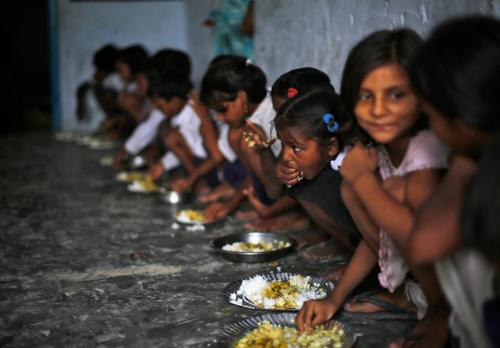
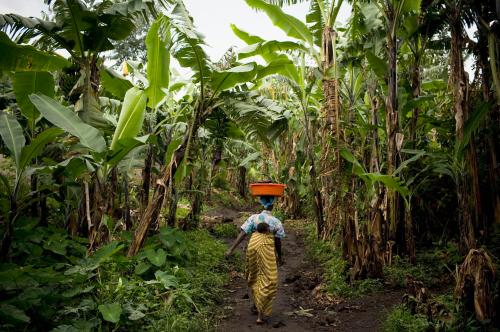
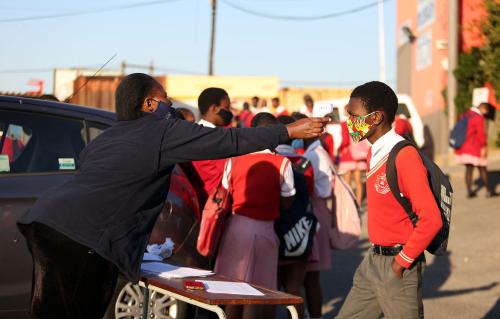
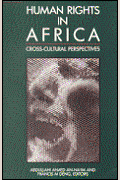
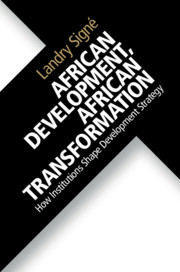





Commentary
Discrimination and prejudice in development
July 15, 2020